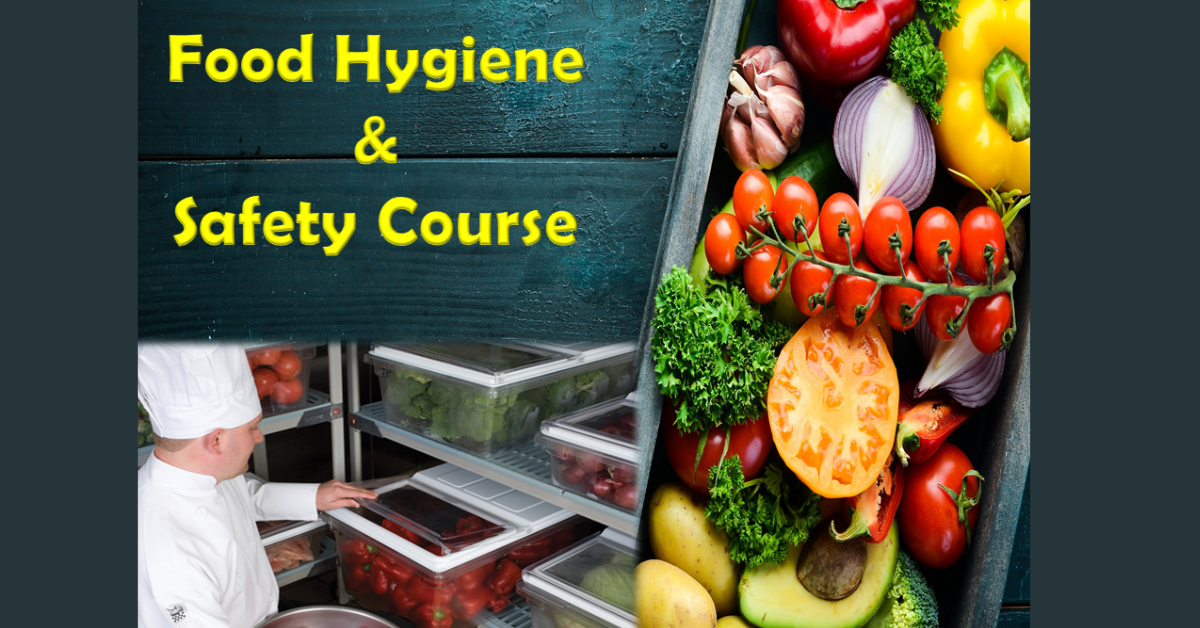Food Hygiene Certificate – Comply with Singapore’s Food Safety Standards
Singapore’s food industry is held to one of the highest safety standards in the world. To work in this environment, individuals must demonstrate their competency and commitment to public health. Food Hygiene Certificate is a requirement not just to ensure food safety, but to build trust with consumers and strengthen the integrity of Singapore’s vibrant F&B sector. Understanding how this certification benefits individuals and businesses is essential for anyone serious about food safety. In this article, we’ll explore its purpose, the certification process, and the tangible benefits it delivers to our industry.
Food safety is not just about meeting regulations. It’s a proactive measure that protects lives, preserves brand reputation, and ensures customer loyalty. The Food Hygiene Certificate is a powerful credential that reinforces the importance of clean, safe food handling practices across all levels of the food service sector.
Understanding the Role of Food Safety in Singapore
Singapore’s National Environment Agency (NEA) has long emphasized the need for high standards in food safety. With an ever-evolving culinary landscape—from hawker stalls to fine dining restaurants—ensuring consistent hygiene practices is critical. Foodborne illnesses not only disrupt lives but damage business credibility and public health trust. That’s why Singapore mandates training for all food handlers.
Obtaining the certification is more than a legal requirement—it’s a practical necessity. Whether someone is new to the food industry or a seasoned worker, acquiring foundational knowledge through certified training enhances awareness and sets a professional tone from the start.
The Certification Process: What to Expect
Getting certified involves completing the Basic Food Hygiene Course. This is a structured, practical program tailored to equip individuals with the essential knowledge of food safety practices. The course is usually conducted over a one-day session and includes both theory and hands-on components, followed by an assessment.
Here’s what the training typically covers:
Personal hygiene and proper handwashing techniques
Cross-contamination prevention strategies
Safe food storage methods
Temperature control
Cleaning and sanitization procedures
After successfully passing the test, participants receive their certificate, which is valid for five years. To maintain certification, a refresher course must be taken before expiry, ensuring that handlers stay updated with the latest safety protocols.
Why Certification Matters in the Food & Beverage Industry
A certified workforce sends a strong message to customers—one of reliability, responsibility, and respect for public health. Certification helps ensure consistency across staff in the areas of sanitation, food preparation, and customer service.
Here are some key advantages:
Boosted Consumer Confidence: Patrons are more likely to return to and recommend establishments where they trust the hygiene practices.
Legal Compliance: Certification is mandatory. Non-compliance could lead to fines, penalties, or even business suspension.
Risk Mitigation: Trained staff are less likely to make critical food safety errors, reducing liability and foodborne illness incidents.
Operational Efficiency: Certified employees work more confidently, reducing waste, improving kitchen flow, and maintaining cleanliness.
How Businesses Benefit From a Certified Workforce
Having a certified team isn’t just about meeting legal requirements—it also enhances the overall brand perception. Businesses that invest in staff training demonstrate accountability and leadership in their niche.
Restaurants, catering companies, and food manufacturers who prioritize hygiene certification often experience:
Improved team morale and reduced turnover
Higher ratings and reviews from customers
Fewer disruptions during NEA inspections
Greater trust from partners and suppliers
When teams understand the “why” behind food safety and apply those lessons daily, hygiene becomes second nature rather than a chore.
The Certification Path for Food Handlers and Managers
While the Basic Food Hygiene Certificate is aimed at entry-level food handlers, supervisory and management roles often require more advanced training. The goal is to create layered accountability throughout an organization.
Food business owners, managers, and chefs can pursue higher-level qualifications like:
Workplace Safety and Health certifications
WSQ Food and Beverage Hygiene Audit modules
Food Hygiene Officer qualifications
These roles are critical in enforcing internal hygiene protocols, conducting regular audits, and leading by example in creating a food-safe culture.
Common Mistakes That Certification Helps Prevent
Untrained staff can unintentionally make serious mistakes that impact food quality and safety. Certification trains them to identify and correct these risks before they become costly problems.
Some of the most common issues prevented by training include:
Storing raw and cooked food together
Not washing hands after handling waste
Reheating food improperly
Poor utensil sanitation
Using expired products
By knowing what to watch for and how to respond, certified individuals act as the frontline defense against health risks in food preparation environments.
Building Long-Term Careers in the F&B Industry
Food hygiene certification is not just about a single job—it’s a career foundation. In a highly competitive market, being certified sets candidates apart when applying for roles or promotions. It shows initiative, responsibility, and an understanding of essential safety practices.
For food entrepreneurs, holding and promoting certification signals to potential investors, landlords, and customers that your business is credible and compliant.
This qualification is also transferrable. While specific certifications may vary from country to country, foundational hygiene principles remain universally respected.
How Often Should You Renew Your Food Hygiene Certificate?
The certificate is valid for five years, and refresher training is required to maintain its validity. This ensures professionals remain updated on new regulations, foodborne pathogens, and emerging safety practices.
Renewing on time is essential for:
Ensuring continuous compliance with NEA guidelines
Maintaining your legal eligibility to handle food
Demonstrating professional integrity and commitment
Refresher courses are shorter than the original training but just as vital to reinforce best practices and close knowledge gaps.
Driving a Culture of Hygiene in Every Kitchen
Food safety doesn’t end with certification. It starts there. Certification lays the groundwork, but maintaining hygiene standards requires a team effort and daily discipline. The best food operations incorporate hygiene into their core values.
Here’s how we can keep the momentum going:
Conduct regular internal audits
Use visual reminders for hygiene protocols
Reward compliance and consistency
Train new hires promptly
Encourage open feedback and questions
When everyone is on the same page, from dishwashers to directors, food safety becomes a shared mission—one that builds customer loyalty and long-term success.
Final Thoughts: Certification is the First Step, Not the Last
In Singapore, excellence in food handling is non-negotiable. As one of the world’s culinary hubs, we owe it to our community to uphold these standards not just because the law says so—but because it’s the right thing to do.
Getting your Food Hygiene Certificate is a small investment with massive returns: better jobs, safer food, stronger businesses, and a more resilient industry overall. Whether you’re starting your career or managing a food business, this certification proves that you value professionalism, safety, and the people you serve.
Together, let’s set the standard. Let’s make clean, safe, and trustworthy food the norm—everywhere, every day.







